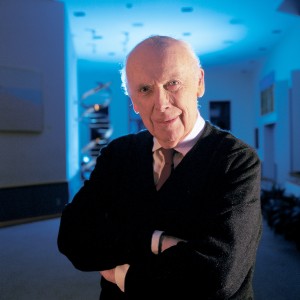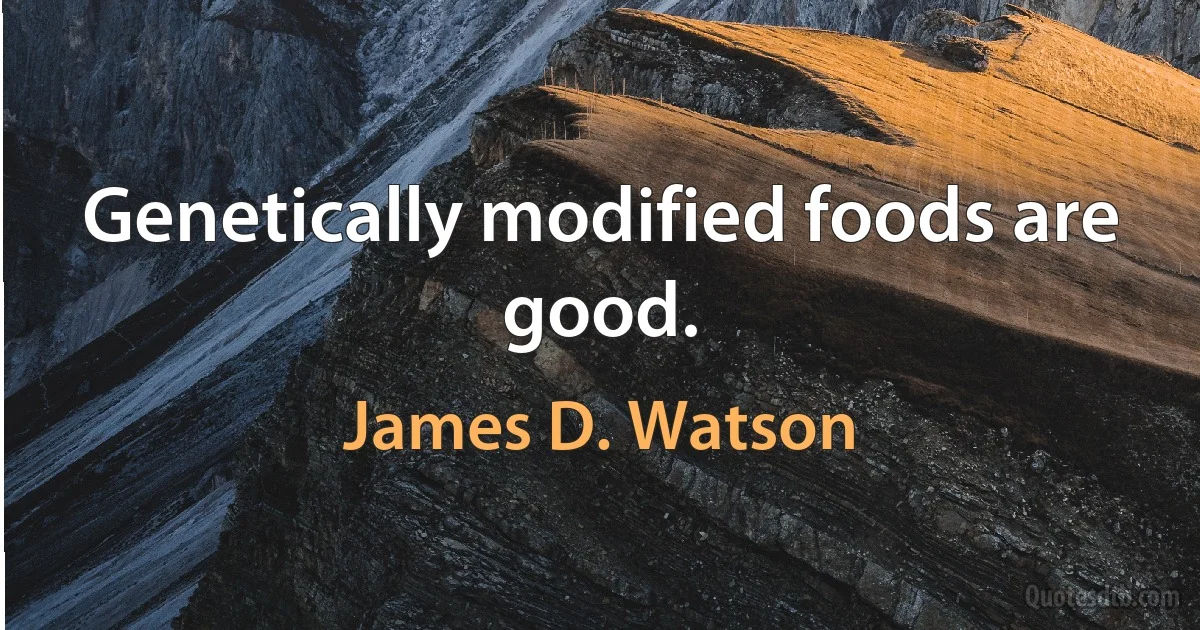James D. Watson quotes - page 4
James D. Watson is an American molecular biologist and geneticist, best known for co-discovering the structure of DNA. His groundbreaking work with Francis Crick changed the course of modern biology and medicine. He has received numerous honors for his contributions to science, including the Nobel Prize in Physiology or Medicine. Here are 101 of his quotes:
I was always very curious about what a scientist's life was like when I was young. Of course, when I was young, you didn't have very many opportunities to find out with no web, TV. I was very lucky: I was born in the city of Chicago and went to the University of Chicago where I actually saw things.

James D. Watson
Science Ph.D. students have effectively become serfs. And who would become a serf when you can work for Goldman Sachs and get paid $300,000 a year to become a serf? Why drive a Chevy when you can drive a BMW - and now you're condemned to driving a car from Malaysia or something. Life should be fun.

James D. Watson
Since 1978, when a pail of water was dumped over my Harvard friend E. O. Wilson for saying that genes influence human behaviour, the assault against human behavioural genetics by wishful thinking has remained vigorous.
But irrationality must soon recede. It will soon be possible to read individual genetic messages at costs which will not bankrupt our health systems. In so doing, I hope we see whether changes in DNA sequence, not environmental influences, result in behaviour differences. Finally, we should be able to establish the relative importance of nature as opposed to nurture.

James D. Watson
The discovery of the double helix sounded the death knell for vitalism. Serious scientists, even those religiously inclined, realized that a complete understanding of life would not require the revelation of new laws of nature. Life was just a matter of physics and chemistry, albeit exquisitely organized physics and chemistry. The immediate task ahead would be to figure out how the DNA-encoded script of life went about its work.

James D. Watson
Knowledge, even that which may unsettle us, it surely to be preferred to ignorance, however blissful in the short term the latter may be. All too often, however, political anxiousness favors ignorance and its apparent safety: we had better not learn about the genetics of skin color, goes the unspoken fear, lest such information be marshaled somehow by hatemongers opposed to mixing among the races.

James D. Watson
The finding that there is a substantial genetic component to our behavior should not surprise us; indeed, it would be far more surprising if this were not the case. We are products of evolution: among our ancestors, natural selection indubitably exerted a strong influence over all traits that have figured in our survival.

James D. Watson
The reality is that the idea of improving on the genes that nature has given us alarms people. When discussing our genes, we seem ready to commit what philosophers call the naturalistic fallacy, assuming that the way nature intended it is best. By centrally heating our homes and taking antibiotics when we have an infection, we carefully steer clear of the fallacy in our daily lives, but mentions of genetic improvement have us rushing to run the "nature knows best” flag up the mast. For this reason, I think that the acceptance of genetic enhancement will most likely come about through efforts to prevent disease.

James D. Watson
We do not yet adequately understand the way in which the different environments in the world have selected over time the genes which determine our capacity to do different things. The overwhelming desire of society today is to assume that equal powers of reason are a universal heritage of humanity. It may well be. But simply wanting this to be the case is not enough. This is not science.
To question this is not to give in to racism. This is not a discussion about superiority or inferiority, it is about seeking to understand differences, about why some of us are great musicians and others great engineers. It is very likely that at least some 10 to 15 years will pass before we get an adequate understanding for the relative importance of nature versus nurture in the achievement of important human objectives. Until then, we as scientists, wherever we wish to place ourselves in this great debate, should take care in claiming what are unarguable truths without the support of evidence.

James D. Watson
James D. Watson
 Occupation: American Scientist
Occupation: American Scientist
Born: April 6, 1928
Quotes count: 101
Wikipedia: James D. Watson













